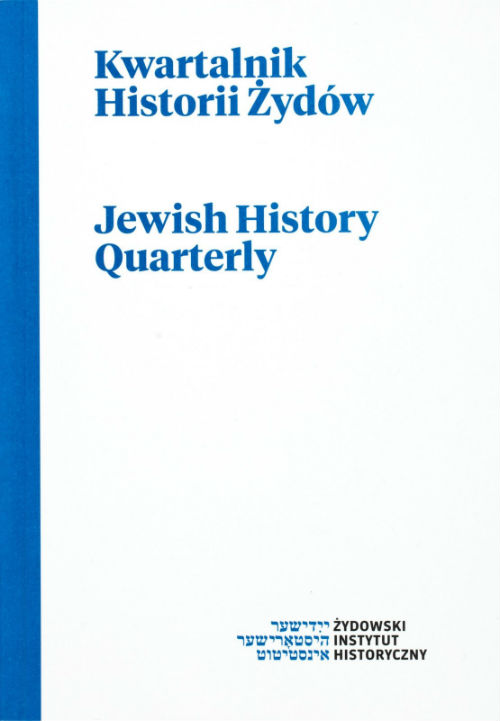Centers of Hebrew Literature in Eastern Europe at the End of the 19th Century and the Beginning of the 20th
Centers of Hebrew Literature in Eastern Europe at the End of the 19th Century and the Beginning of the 20th
Author(s): Zohar ShavitSubject(s): Cultural history
Published by: Żydowski Instytut Historyczny
Keywords: Hebrew literature; the book market; literary centers; readership; high brow and popular literature
Summary/Abstract: Historiographies of Hebrew literature maintain that centers of Hebrew literature began to flourish in Eastern Europe, especially in Poland, towards the end of the 19th century. They were based on defined groups of writers, readers and several entrepreneurs in the book industry, who created, for the first time in the history of Modern Hebrew literature, a solid literary center. In this paper I challenge this common view of the Hebrew literary centers in Eastern Europe by describing and analyzing the growth in the reading public which generated euphoric emotions among contemporary men of letters. I contend that the nature of the reading public and its structure were misinterpreted. The Hebrew men of letters failed to notice that the increase in readership resulted from the reading of popular literature and failed to grasp that Hebrew literature had begun to fulfill for its readers functions of popular reading that were previously fulfilled by Yiddish literature. This mistaken understanding of the new reading public resulted from the high status attributed to Hebrew literature as the most significant manifestation of national yearnings and Revival. In this framework there was no room for popular literature. Light reading of Hebrew literature was inconceivable and thus the emergence of a new group of readers was immediately and almost automatically wrongly interpreted. The growth in the reading public was not associated with a change in the structure of the reading public and with the fact that Hebrew literature had become more heterogeneous in nature. This process of stratification of the literary system, which might have led to a normalization of the Hebrew system, was much too premature for the cultural consciousness. Hebrew literature had to wait more than 60 years before it allowed for such stratification of the literary field in Eretz-Israel, and even then reluctantly allowed a popular literature to develop.
Journal: Kwartalnik Historii Żydów
- Issue Year: 247/2013
- Issue No: 03
- Page Range: 463-472
- Page Count: 10
- Language: English

